With the Supreme Court approaching the start of summer, the justices will likely decide the Court’s major remaining cases by late June. Here is a list of the major decisions expected from the nine justices, including rulings on free speech, redistricting, the environment, student loans, immigration, and speech protections for internet content providers.
UPDATED: 6/30/2023
Biden v. Nebraska and Department of Education v. Brown
ARGUED: 2/28/2023
These highly publicized cases involve the legality of the Biden administration’s student-debt relief program. Among the questions before the Court are if the respondents have the standing to challenge the program in court; if the Biden administration exceeded power granted to it by lawmakers; and if the Biden administration used the proper procedures to adopt the program.
DECISION: 6/30/2023: In a 6-3 decision from Chief Justice John Roberts in the Nebraska case, the Court said the Secretary of Education lacked the authority under the HEROES Act “to rewrite that statute to the extent of canceling $430 billion of student loan principal.” The other challenge was dismissed for lack of standing.
303 Creative LLC v. Elenis
ARGUED: 12/5/2022
In this case, an artist declined to design a website for a same-sex wedding, stating it was against her religious beliefs. The Court is considering if a Colorado public-accommodation law violates the First Amendment’s Free Speech Clause if it compels a website artist and designer to speak or stay silent.
DECISION: 6/30/2023: In a 6-3 decision from Justice Neil Gorsuch, the Court held that the First Amendment prohibits Colorado from forcing a website designer to create expressive designs speaking messages with which the designer disagrees.
Students for Fair Admissions v. President and Fellows of Harvard College and Students for Fair Admissions v. University of North Carolina
ARGUED: 10/31/2022
In these cases, the Court is reviewing its prior precedent, Grutter v. Bollinger, regarding the constitutionality of affirmative action in higher education,and if institutions of higher education can still use race as a factor in their student admissions process.
DECISION: 6/29/2023: A divided Supreme ruled that the use of affirmative action in admissions programs at two universities was unconstitutional. In the majority decision, Chief Justice John Roberts said the admissions programs could not be reconciled with the “guarantees of the [Constitution’s] Equal Protection Clause.” In her dissent, Justice Sonia Sotomayor said the decision “rolls back decades of precedent and momentous progress. It holds that race can no longer be used in a limited way in college admissions to achieve such critical benefits.”
Groff v. DeJoy
ARGUED: 4/18/2023
In this case, the Court will decide what is an “undue hardship” for an employer under the Civil Rights Act of 1964’s Title VII, after a postal worker declined to work on Sundays delivering Amazon packages due to his religious beliefs.
DECISION: 6/29/2023: In a unanimous opinion, Justice Samuel Alito wrote that “Title VII requires an employer that denies a religious accommodation to show that the burden of granting an accommodation would result in substantial increased costs in relation to the conduct of its particular business.” The Court left the context-specific application of that clarified standard in this case to the lower courts to decide.
Counterman v. Colorado
ARGUED: 4/19/2023
A case involving numerous messages sent to a Facebook user that were interpreted by their recipient as threatening, leading to the sender’s conviction under a Colorado state stalking law. The court is considering if the sender knew or understood the statements could be interpreted as “true threats” unprotected by the First Amendment, or if a test that a reasonable person would understand the statements as threatening was enough to remove the speaker’s First Amendment protections.
DECISION: 6/27/2023: In a 7-2 decision, the Court’s majority said the State must prove in true-threats cases that the defendant had some subjective understanding of his statements’ threatening nature, but the First Amendment requires no more demanding a showing than recklessness.
Moore v. Harper
ARGUED: 12/7/2022
In this case, the Court is considering the ability of North Carolina state lawmakers to have final approval over their own redistricting map. The power to do so would be based on an “independent state legislature” theory that cites the U.S. Constitution’s Election Clause as granting exclusive powers to state lawmakers to regulate federal elections within states.
DECISION: 6/27/2023: In a 6-3 opinion from Chief Justice John Roberts, the Court’s majority found that the Constitution’s Elections Clause does not vest exclusive and independent authority in state legislatures to set the rules regarding federal elections.
United States v. Texas
ARGUED: 11/29/2022
The Court is considering if certain states have standing to challenge the Biden administration’s revised immigration guidelines, and if the revised guidelines violate the Administrative Procedure Act.
DECISION: 6/23/2023: In an 8-1 decision, the Court’s majority said Texas and Louisiana lacked Article III standing to challenge the Biden administration’s immigration-enforcement policy.
Arizona v. Navajo Nation
ARGUED: 10/12/2022
The case centers on a dispute between the Navajo Nation and several states about water rights for the Colorado River. It involves the scope of the Supreme Court’s exclusive jurisdiction over the river’s waters.
DECISION: 6/22/2023: In a 5-4 decision, the Court said the 1868 treaty establishing the Navajo Reservation reserved necessary water to accomplish the purpose of the Navajo Reservation but did not require the United States to take affirmative steps to secure water for the Tribe.
Jack Daniel’s Properties v. VIP Products LLC
ARGUED: 3/22/2023
This case involves the design and branding of a line of humorous dog chew toys that resemble familiar trademarks. The Court is considering if the trademark holder is protected by the Lanham Act or if the toys’ producer instead receives heightened First Amendment protection due to the humorous nature of the dog toys, among other factors.
DECISION ON 6/8/2023: In a unanimous opinion, the Court rejected the Ninth Circuit’s expansive view of the noncommercial use exclusion that a parody is always exempt from fair-use limits established by Congress.
Merrill v. Milligan
ARGUED: 10/4/2022
The justices will decide if Alabama’s 2021 redistricting plan for its seven districts in the U.S. House of Representatives conflicts with the Voting Rights Act’s Section 2, which bans racial discrimination in voting policies.
DECISION ON 6/8/2023: In a 5-4 opinion from Chief Justice John Roberts, the Court affirmed the District Court’s determination that plaintiffs demonstrated a reasonable likelihood of success on their claim that Alabama’s 2021 redistricting plan violated Section 2 of the Voting Rights Act.
Sackett v. Environmental Protection Agency
ARGUED: 10/3/2022
In this case, the Court is considering the proper test for determining if wetlands are “waters of the United States” under the Clean Water Act, and the Environmental Protection Agency’s ability to regulate wetlands in general.
DECISION ON 5/25/2023: The justices decided the EPA lacked the ability to regulate the petitioners’ property. A majority held the legal definition of wetlands is now limited to areas with a continuous surface connection to other waters. Four justices disagreed with the new definition.
Andy Warhol Foundation for the Visual Arts, Inc. v. Goldsmith
ARGUED: 10/12/2022
This case involves a copyright dispute about the use of a photograph taken in 1981 of the musician Prince used in a later series of prints and illustrations created by the artist Andy Warhol without the photographer’s consent. The Andy Warhol Foundation for the Visual Arts argued the fair-use doctrine permitted such derivative works.
DECISION: 5/18/2023: In a 7-2 decision, the Court ruled said that the foundation did not have a fair-use defense to license a derivative version of the photograph for commercial purposes.
Gonzalez v. Google LLC and Twitter, Inc. v. Taamneh
ARGUED: 2/21/2023, 2/22/2023
In Gonzalez v. Google, the Court considered if the Communications Decency Act’s Section 230 allows lawsuits against internet services when algorithmic programs recommend a third party’s content to likely users, or if they can be sued only when engaging in traditional, manual editorial functions.
In Twitter v. Taamneh, the Court took on a similar question about the liability of widely available internet services such as Google’s YouTube service, Facebook, and Twitter under Section 2333 of the Anti-Terrorism Act, and if these services can be sued based on the level of activity undertaken by them to detect their use by foreign terrorists such as ISIS.
DECISION: 5/18/2023: Writing for a unanimous court ruled in Twitter v. Taamneh, Justice Clarence Thomas said that “the plaintiffs’ allegations are insufficient to establish that these defendants aided and abetted ISIS in carrying out the relevant attack.” After the Twitter decision, the court remanded the Gonzalez v. Google case back to the Ninth Circuit for reconsideration.
Groff v. DeJoy
ARGUED: 4/18/2023
In this case, the Court will decide what is an “undue hardship” for an employer under the Civil Rights Act of 1964’s Title VII, after a postal worker declined to work on Sundays delivering Amazon packages due to his religious beliefs.
DECISION: 6/29/2023: In a unanimous opinion, Justice Samuel Alito wrote that “Title VII requires an employer that denies a religious accommodation to show that the burden of granting an accommodation would result in substantial increased costs in relation to the conduct of its particular business.” The Court left the context-specific application of that clarified standard in this case to the lower courts to decide.

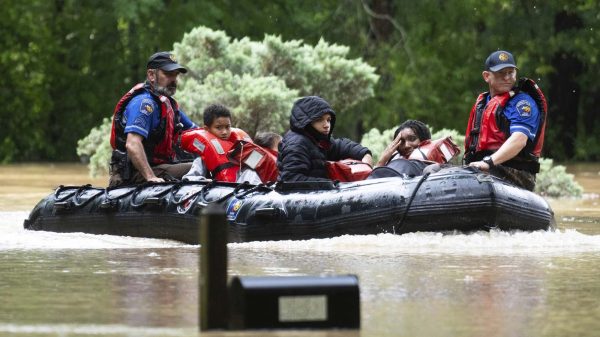
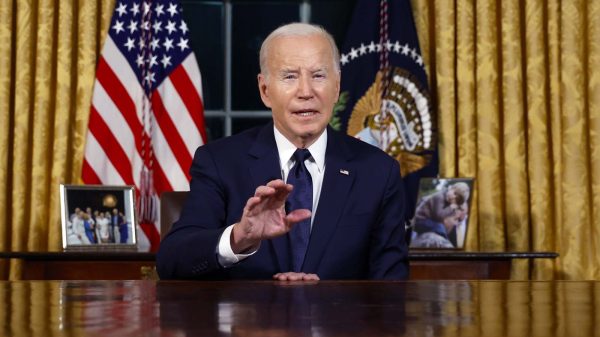
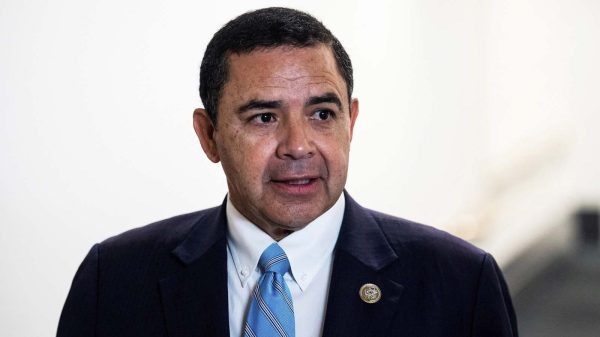


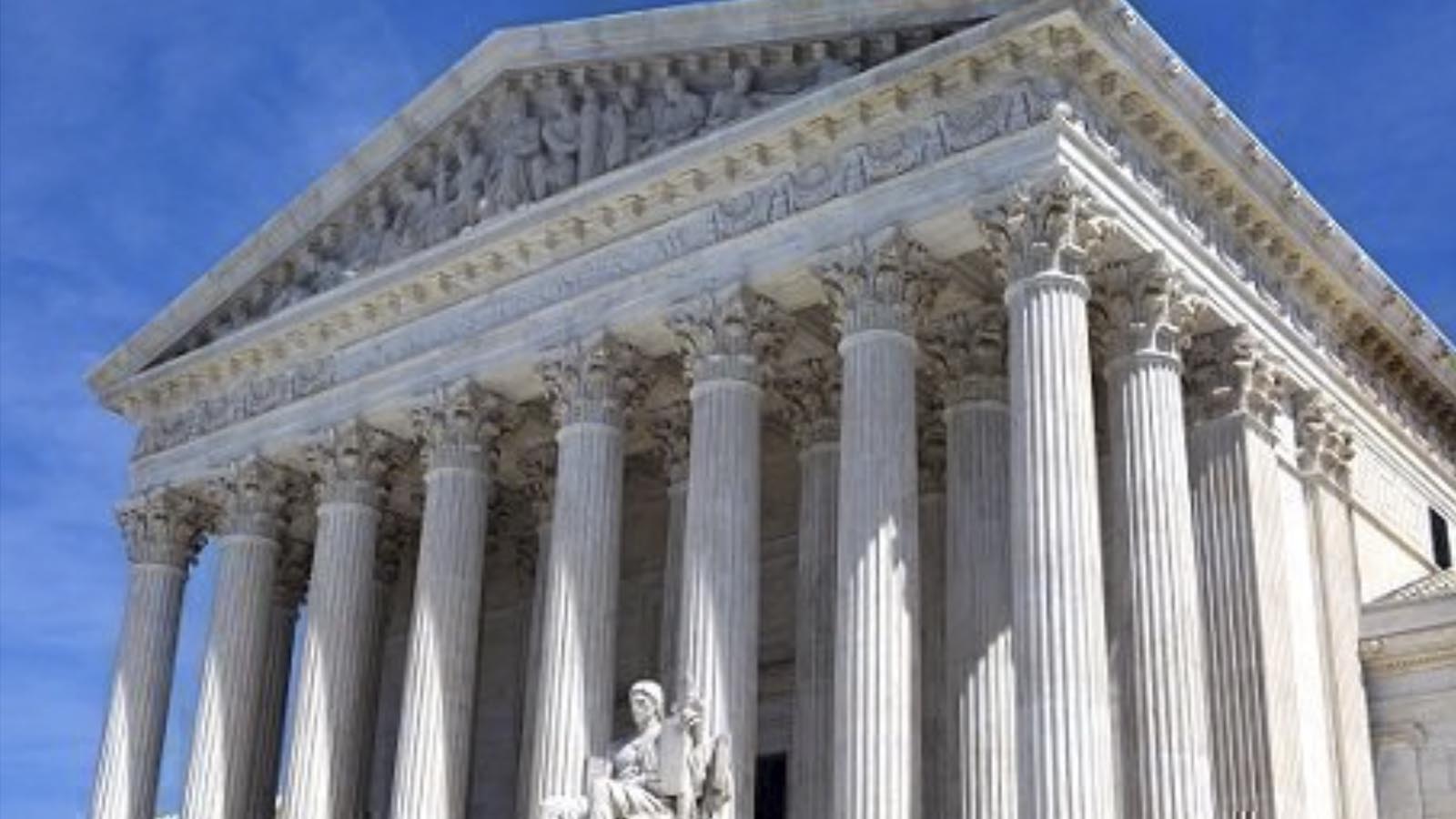
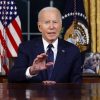





Tell me what Article III states. In hos oath of office. Biden stated he would defend the USA Constitution and our borders. He has violated the Constitution and os paid to ignore the invasion and humsn a nd drug trafficking by the CCP AND THE CARTELS.